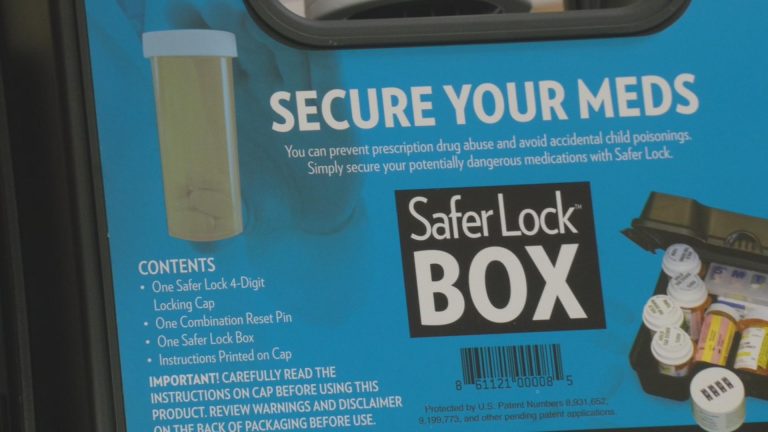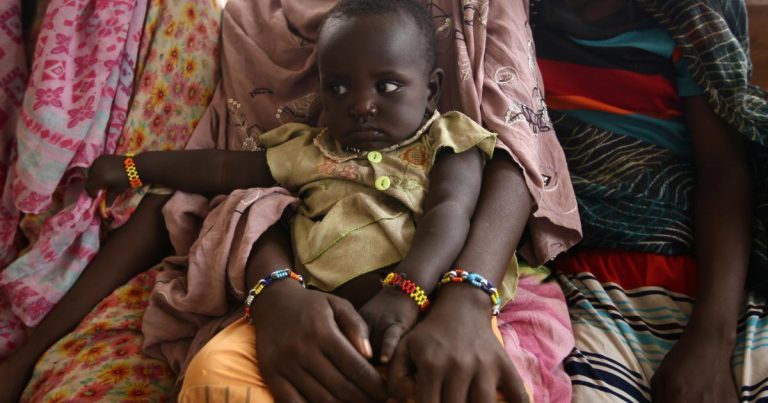
Brave the Heatwave: Doctor-Backed Tips to Stay Healthy | Image Source: m.rediff.com
MUMBAI, India, 8 April 2025 – As temperatures continue to rise throughout the country, the threat of summer-related diseases is increasingly real. From mild dehydration to potentially deadly heat storms, experts urge citizens to take the warnings of the heat wave seriously. Cardiovascular Surgeon Dr. Shriram Nene, in a recent shared health advisor on his YouTube channel, provided a practical, evidence-based guide to help people protect their health this season. With the intensification of the summer in the regions, especially in the urban areas of India, preventive care is not only an option, it is essential.
According to Dr. Nene, staying healthy at high temperatures requires more than common sense. It requires a conscious lifestyle change: more water, smarter nutrition, sun protection and adjustment to daily routines. These are not luxury practices, they are fundamental survival strategies. Add to this a cultural context where access to clean bathrooms and heated environments is not guaranteed for all, and the urgency becomes even clearer. This article explores Dr. Baby’s health plan and complements it with expert advice and concrete examples, making sure you have the tools to effectively hit heat.
Why is summer heat so dangerous?
The human body is a well adapted machine. But during a heat wave, this precision can quickly be dismantled. According to Dr. Amlendu Yadav, as the body with an egg placed in boiling water is not far away. He explains that excessive heat literally begins to denaturize proteins in the body. What starts with fatigue or dizziness can quickly snowball in case of a serious medical emergency. Heat, for example, is the body’s inability to regulate its central temperature, often leading to confusion, loss of consciousness and even organ failure. According to several health tips, it can be established within 10 to 15 minutes after exposure to the extreme sun without adequate hydration or protection.
Why? In short, our bodies cool by sweat, which releases heat. But when it’s wet or dehydrated, sweat becomes ineffective. The internal temperature of the body increases and organs, especially the brain and heart, begin to function badly. That is why prevention is so critical. And it starts with water.
How much water do you need?
Dr. Baby makes it clear that hydration is not just about drinking when you’re thirsty. The thing is often a sign of last step. According to him, men must target about 3.75 litres of water a day, while women need about 2.7 litres. However, this number is not fixed. ”It depends on your level of activity, the amount of sweat you sweat and whether you are sick,” Nene explains. For example, if you exercise outside or travel frequently during the day, your body’s liquid requirements increase considerably.
It also offers practical hydration problems: check the color of the urine. Pale yellow means it is probably well hydrated. Darker fools? Time to get that bottle of water. Other subtle signs include dry lips, sticky mouth and fatigue. Office workers, in particular, tend to ignore hydration. Setting up telephone alarms or using smart water bottles can help create better habits. The trip here is simple but critical – drink more water than you think you need, especially during a heat wave.
Why sunscreen is not optional - even for Indian skin
There is a common myth in India: skin rich in melanin does not need sunscreen. Dr. Baby contradicts this myth with a severe warning. Melamine offers natural protection, but it is not bulletproof. “Long-term solar exposure increases the risk of pigmentation, sunburn and even skin cancer,” he says. The sunscreen is not just about avoiding tanning – it’s about protecting your larger organ from cellular damage.
What kind of sunscreen should I use? Dermatologists recommend a broad-spectrum solar protector with a FPS of at least 30. Apply 15 minutes before leaving and apply every two hours if permanently exposed. Remember, even cloudy days can cause skin damage due to UV rays. And if the sunscreen is not available, choose physical barriers such as broad hats, sunglasses and cotton clothing with full sleeves.
What do you have to eat to stay cool?
Food plays a surprisingly strong role in the well-being of the summer. Dr. Baby focuses on a diet rich in water-condensed fruits and vegetables. Think of watermelon, cucumbers, oranges, grapes and spinach. These not only hydrate but also provide essential electrolytes – salts such as sodium and potassium that are lost by sweat.
“Eating heavy or fatty foods in summer increases metabolic heat,” says Dr. Nene. Instead, go to lighter meals with less spices and more natural cooling agents such as cooking water, mint and coconut. Electrolytic replacement is essential, either with oral rehydration solutions (SAR) or with home-made alternatives such as lemon water with a pinch of salt and sugar.
In addition, Dr. Baby recommends avoiding caffeine and alcohol during rush hours, as both are diuretics and can lead to dehydration. Instead, choose butter milk, fruit-infused water or herbal tea. And let’s not forget hygiene. Food is faster in summer, increasing the risk of foodborne diseases. Always keep perishable foods properly and eat freshly prepared meals.
What are some Tweeaks lifestyles to survive a heat wave?
Time is all. More practical advice? Avoid leaving between 10 a.m. and 4 p.m. It’s when the sun is in its fiercest. According to several reports, including Moneycontrol, this small change can significantly reduce exposure to harmful UV rays and extreme temperatures.
If you have to leave, follow these golden rules:
-
- Use an umbrella or wide-brimmed hat to cover your head.
- Opt for breathable, light-colored clothing made of cotton or linen.
- Carry a bottle of water or a hydration pack.
- Take breaks in shaded or air-conditioned areas.
Dr. Amlendu Yadav stresses the thermal impact of direct sun: “Our bodies begin to sip and boil like cooked protein. A graphic metaphor, yes, but useful. Protecting your body means protecting your vital organs. Simple measurements such as head cover, metal bank avoidance, and wearing shoes with thick soles can greatly help prevent burns or heat.
How is mood and mental health factor in summer health?
A side effect often overlooked by burning heat? Mood disorders. Prolonged exposure to high temperatures can affect serotonin and dopamine levels, resulting in irritability, lethargy and even short-term depression. According to a Reiff report, seasonal changes can alter sleep habits, appetite and general energy levels, all closely related to mental well-being.
To counter this, prioritize sleep hygiene. Keep your room cold with fans, air conditioning, or even place a bowl of ice in front of a fan for a DIY cooling system. Avoid heavy meals or caffeine before bedtime, and keep screens at least 30 minutes before sleeping. Short walks for colder hours and participation in breathing or meditation exercises can also help stabilize mood changes caused by the climate.
“The key to a healthy summer is not a big change, but a number of small changes that are aware of everyday behaviour,” says Dr. Baby.
What are the warning signs of heat disease that you should not ignore?
Know what care can save lives. According to TheHealthSite and Rediff, symptoms of heat loss include dizziness, nausea, excessive sweating, rapid pulse and muscle cramps. If not treated, it can rise to heat, where symptoms include dry skin (heat due to despair), confusion, seizures and fainting. In such cases, immediate medical care is essential.
Here is a quick action checklist if you suspect that someone is experiencing a calorie attack:
- Move the person to a cool, shaded area immediately.
- Remove excess clothing to allow heat to escape.
- Apply cold compresses or immerse the person in cool water.
- Call emergency services — don’t delay.
Prevention, as always, is the best remedy. With the Indian Meteorological Department planning intense heat waves in the northern and central regions in the coming weeks, adopting these practices can mean the difference between a minor disadvantage and a medical emergency.
Summer doesn’t have to feel like a battlefield. With good habits, tools and mentalities, you can not only survive, but prosper. Start with water. Keep eating. Spit your skin. And above all, respect the sun.




